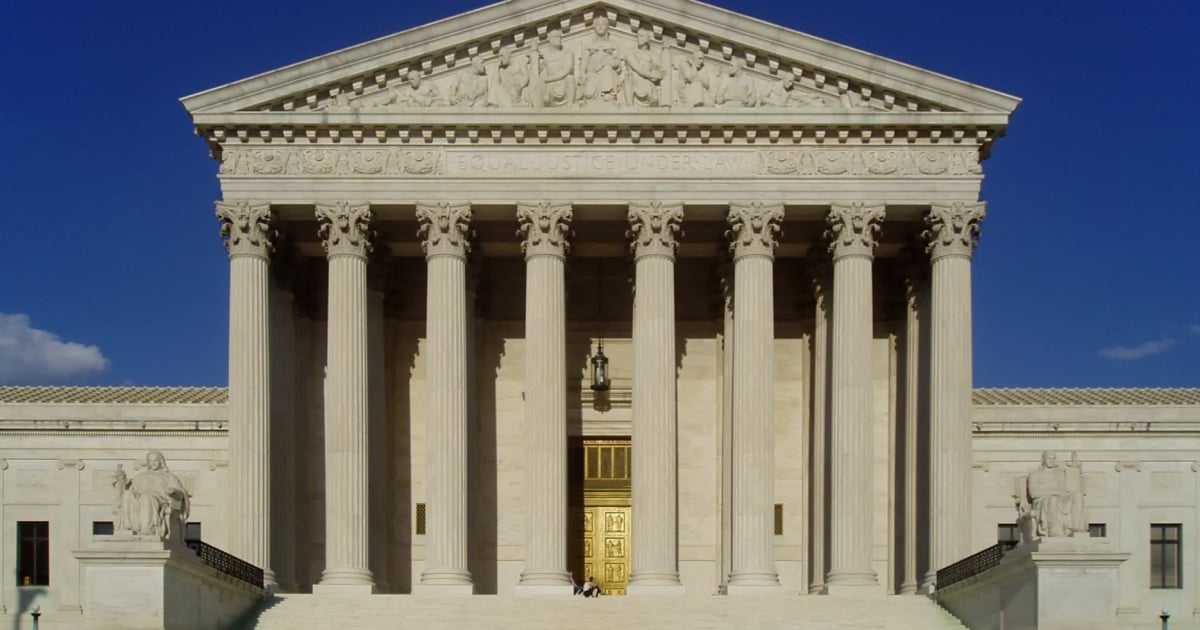The U.S. Supreme Court has granted permission to President Donald Trump to restart deportations of migrants to countries other than their homelands. This decision comes after overturning a prior court order that required the government to provide migrants with a meaningful opportunity to explain the dangers they might face in those nations.
According to ABC, with a 6-3 vote, the conservative majority of the Court reversed the ruling by Judge Brian Murphy of Boston. In April, Murphy had blocked these deportations, arguing that they could result in torture or death if migrants were sent to third countries.
This case involved eight migrants from Myanmar, South Sudan, Cuba, Mexico, Laos, and Vietnam, who were deported last month on a flight heading to South Sudan. The Trump administration labeled them as “the worst of the worst,” although the migrants' lawyers argue that several have no criminal records.
Liberal Justices Sonia Sotomayor, Elena Kagan, and Ketanji Brown Jackson harshly criticized the majority's decision, accusing the court of endorsing illegality. Sotomayor highlighted that the Court chose to risk subjecting thousands to violence in distant countries over the possibility that a judge might have overstepped by demanding minimal due process guarantees.
This ruling marks another victory for Trump in his agenda of mass deportations. In recent decisions, the Supreme Court had already allowed him to end the Temporary Protected Status (TPS) for Venezuelans and pause a humanitarian program benefiting nearly half a million migrants from Cuba, Haiti, Nicaragua, and Venezuela.
The decision could be implemented immediately and paves the way for deportations without prior notice or basic legal safeguards. The Department of Homeland Security, celebrating the ruling as a win for the "security of the American people," indicated that the measure might take effect right away, as reported by AP.
Eight migrants, who had already been placed on a plane bound for South Sudan—including nationals from Cuba, Myanmar, and Vietnam—were eventually moved to a military base in Djibouti after Judge Murphy intervened to halt their deportation.
The migrants' attorneys argue that some have no criminal history and all were notified with less than 16 hours' notice, without a real chance for legal counsel. The defense warns they might face torture or even death if sent to countries where they lack support networks and are unfamiliar with the environment.
In her dissenting opinion, Sotomayor accused the government of acting "without legal constraints" and warned that the Court was allowing deportations without due process. She stated that migrants were exposed to "violence in remote places" due to a decision she found "incomprehensible and inexcusable."
The ruling strengthens President Trump's immigration crackdown, as his administration has forged agreements with countries like Panama and Costa Rica to host migrants, given other nations' refusal to accept deportees from the U.S.
Migrant Deportation Ruling FAQ
What did the Supreme Court decide regarding migrant deportations?
The Supreme Court allowed President Trump to resume deportations to countries other than migrants' homelands, overturning a prior order requiring the government to provide those affected with a chance to explain potential dangers.
Who opposed the Supreme Court's decision?
Liberal Justices Sonia Sotomayor, Elena Kagan, and Ketanji Brown Jackson criticized the decision, accusing the court of endorsing illegal practices and compromising due process for migrants.
How might this decision affect migrants?
Migrants may face immediate deportation without prior notice or legal safeguards, potentially leading them to dangerous situations in unfamiliar countries.
